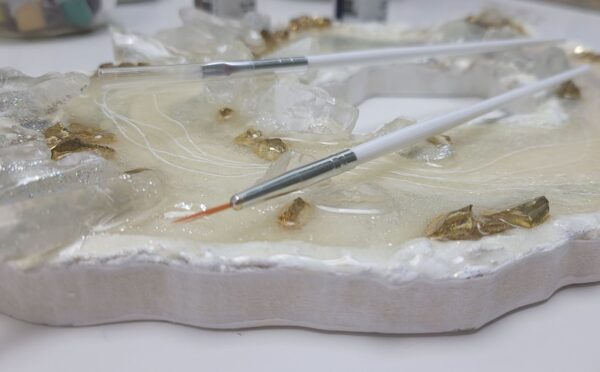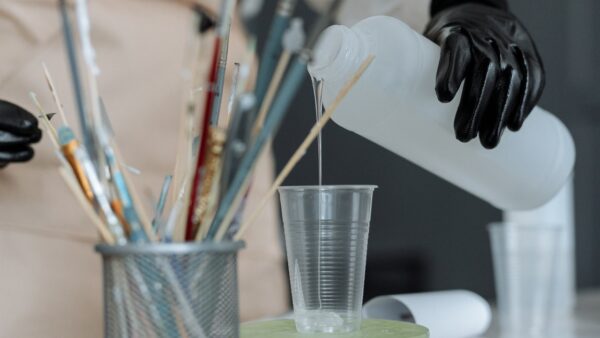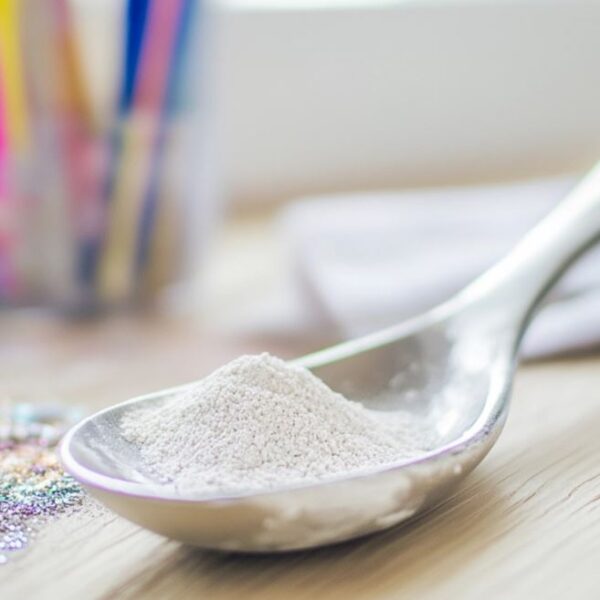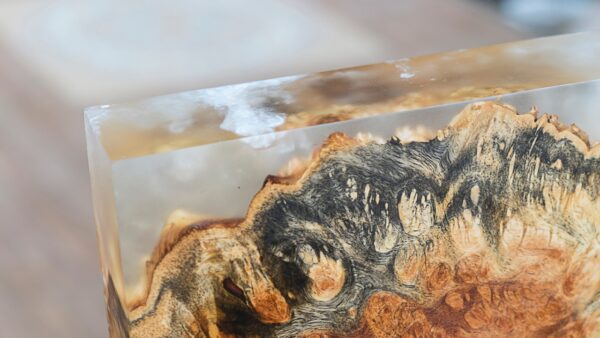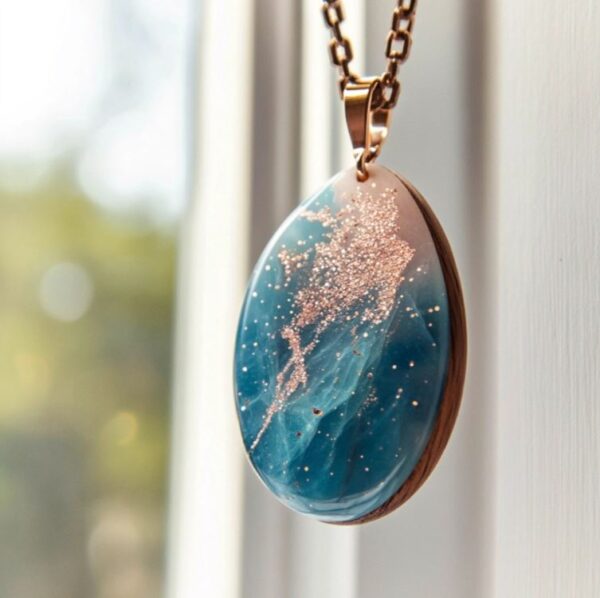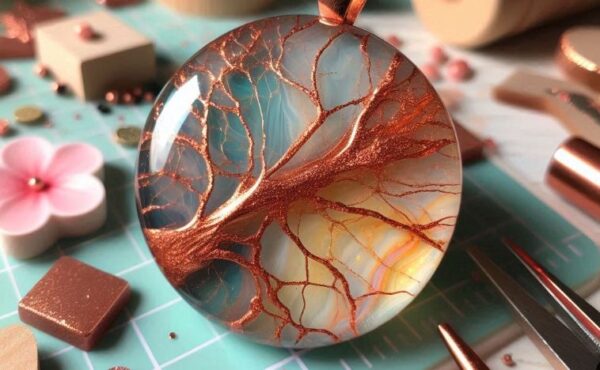White Epoxy Countertops Are Turning Yellow
So you decided to go with white epoxy resin countertops and they are now turning yellow. It’s frustrating, I know. Epoxy resin countertops are beautiful, durable, and a popular DIY choice, but one common issue people run into is yellowing over time.
This can happen for a few reasons, like exposure to UV light, using low-quality resin, or even heat and chemical damage. If you’re planning to use epoxy resin for your countertops, it’s really important to understand what causes yellowing so you can prevent it or at least slow it down.
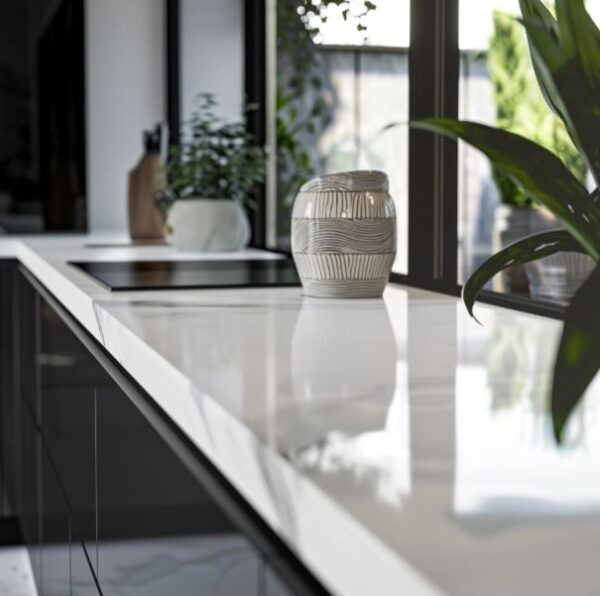
When I first started planning my kitchen project, I really wanted bright white epoxy countertops. But after digging into how easily white can show any yellowing, even when you’re careful, I decided to switch gears.
Now I’m looking at some warmer, more natural tones that will hold up better and still look amazing over time.
See this article about why epoxy resin turns yellow.
Why Epoxy Countertops Are Turning yellow
1. UV Light Exposure
One of the biggest causes of yellowing is UV light. Even indirect sunlight coming through a window can slowly break down the resin and cause it to change color. Some resins are UV resistant, but no resin is completely UV-proof. Over time, even the best products can start to yellow if they’re in a bright room.
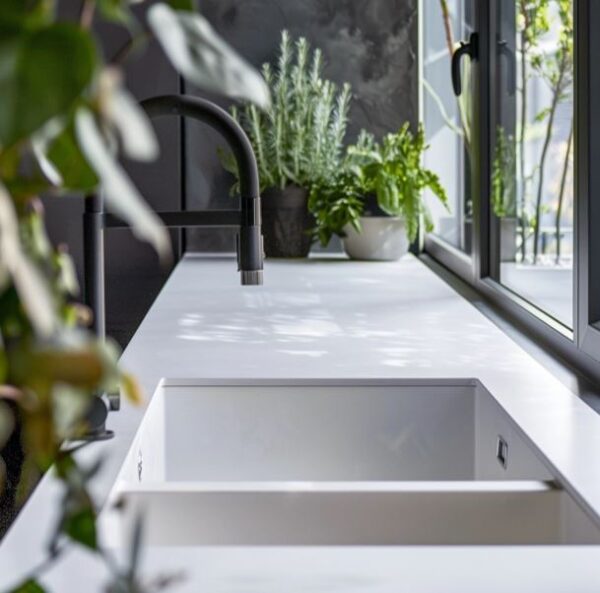
2. Heat Damage
Hot pans, pots, or even small appliances can damage your resin surface. Heat can weaken the chemical bonds in epoxy, leading to a slight amber tint. Even if you’re careful, regular warm exposure can build up and cause yellowing. Using heat pads or trivets can help protect your countertop.
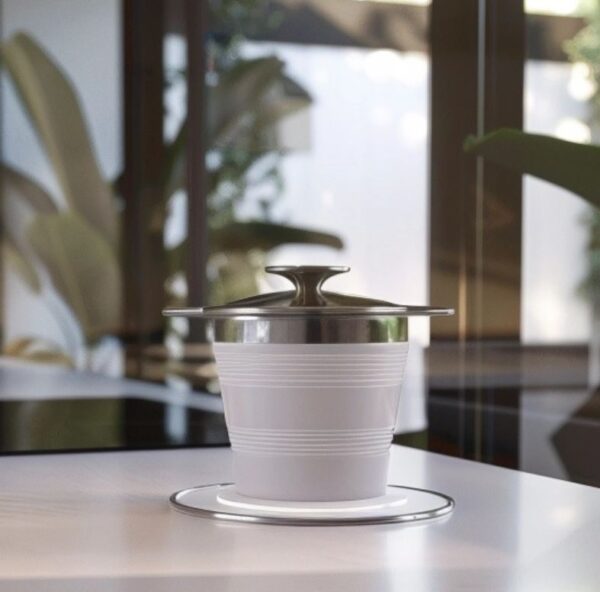
3. Low Quality Resin
Not all resins are made the same. Some cheaper brands don’t have strong UV inhibitors or stabilizers. These resins can start to yellow much faster, even in normal indoor light. It’s worth investing in a high quality, professional grade resin for countertops.
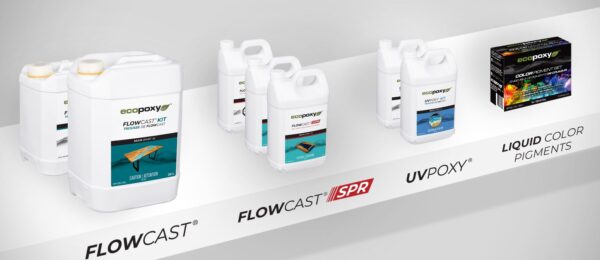
But do realize that since there are many factors that cause yellowing, even if you use a high grade resin, it can still yellow over time. If you are getting your countertops done by contractor, ask what type of resin they use and do some research on it.
I was making a small table and went to a local artisan who sells live wood edge slabs for DIY’s. He had a table he was working on for over $8000 and I saw that he had large amounts of ecopoxy resin. I didn’t even know that they came in those large containers! He said it’s the only brand he uses. But always do your research first and reach out to the brand if you have specific questions.
4. Age of the Resin
Epoxy naturally changes a little as it ages. Even without heavy sunlight or heat, the chemical structure of resin shifts over the years. This can cause a light yellow or amber tone to show up on white surfaces. It’s one of the reasons why many people choose dark or marbled looks instead of pure white.
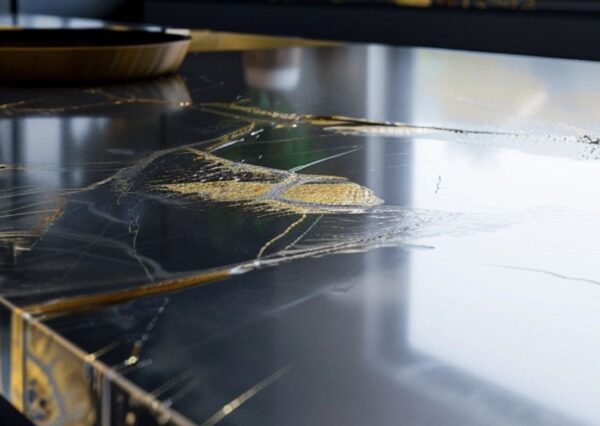
See this article about how to tell if your resin has expired
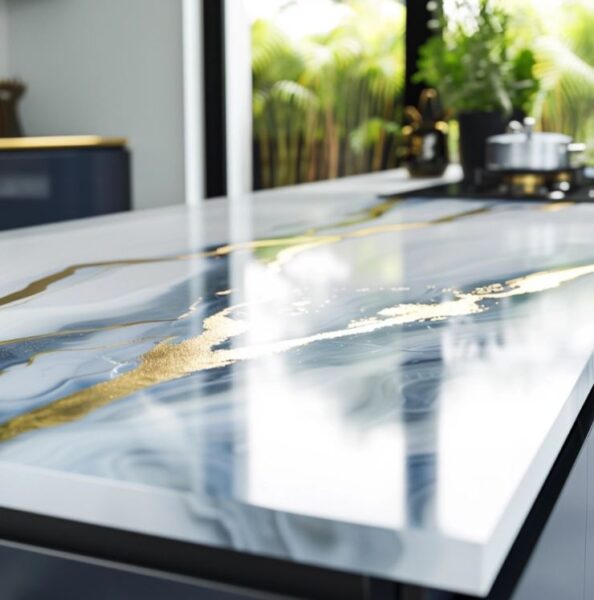
After using epoxy for many years, I can tell you that I’ve used lots of brands and some of my projects and tests have yellowing in them.
5. Chemical Cleaners
Some household cleaners can react with your resin. Products with harsh chemicals, like bleach or ammonia, can speed up discoloration. Even strong soaps that seem harmless might dull or yellow your countertop over time. It’s a good idea to stick to mild, resin-safe cleaners like Promise epoxy cleaners.
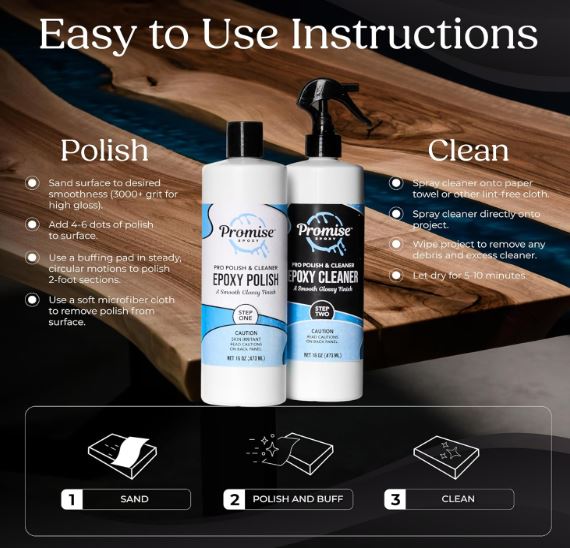
6. Incorrect Mixing
If the resin and hardener weren’t mixed properly, yellowing can happen faster. Uneven ratios or poor mixing can leave soft spots that discolor more quickly. Even if the countertop looks fine at first, problems can show up months later. Always follow the mixing instructions carefully to avoid this.
7. Poor Surface Preparation
If the surface underneath wasn’t cleaned or primed right, it can cause issues. Dirt, oils, or even old stains can bleed through and cause weird yellow patches. The resin might not bond properly, leading to uneven colors. Proper prep work is key for keeping your countertops looking good.
8. Resin Batch Variations
Not every batch of resin is perfectly the same. Even within the same brand, small differences in materials can show up over time. If you’re doing a large area and have to mix multiple batches, one part might yellow sooner than another. It’s smart to buy enough resin from the same lot if possible.
9. Poor Quality Glitters or Resin Colorants
Using low-quality glitters or resin colorants can cause your white countertops to yellow. Crafting glitters are different from professional grade glitters and paints. It’s best to do some test batches to make sure there is full color, and that the glitters do not bleed colors into the resin.
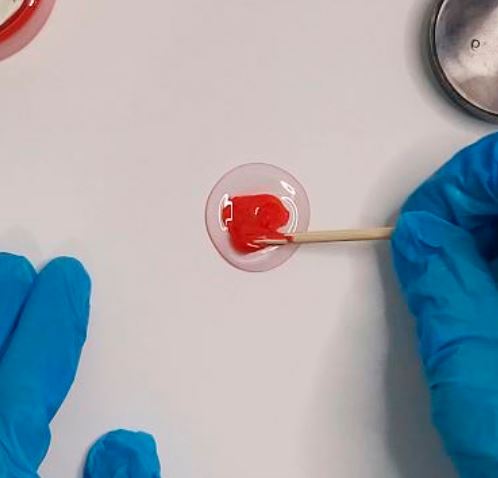
Some cheap glitters and pigments aren’t made for resin and can react badly over time, especially when exposed to sunlight. They can also bleed colors into your white countertops before curing and that does not look very great at all.
Reference Articles
Best paint for adding to resin
They might even shift color, giving your white surface a dingy or yellowed look. Always make sure to use colorants and glitters that are labeled safe for epoxy resin projects to avoid problems later.
10. Natural Light (Not Just UV)
Even without harsh UV, plain old natural light can slowly warm up and change resin. Bright rooms that get a lot of indirect sunlight can still cause yellowing. It’s slower than full UV exposure, but it’s something to think about. Curtains, shades, or UV blocking films can help protect your surfaces.
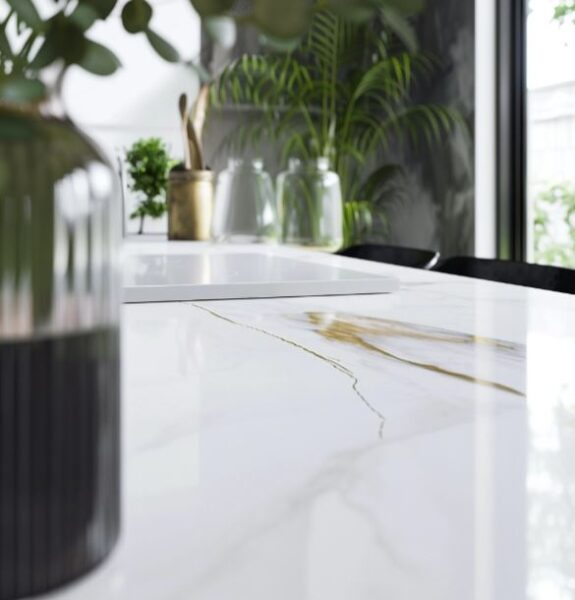
11. Everyday Wear and Tear
Everyday scratches, spills, and small dents can expose the resin to air and light. These tiny imperfections can start to collect grime or discolor faster than smooth areas. Even careful households can’t avoid some daily wear. Regular maintenance and occasional polishing can help slow it down.
Epoxy Resin Countertops FAQ
Should I Make White Resin Countertops?
Honestly, I would say no. White resin countertops might look amazing at first, but they are really hard to keep looking fresh and bright over time.
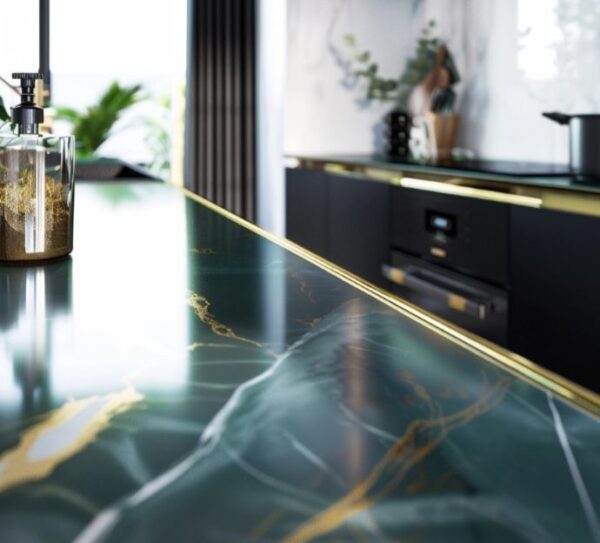
Resin naturally shifts color a little as it ages, and on pure white, every little change shows. If you love the idea of resin, you might want to go with a light marble or a mixed color look instead. It’s way more forgiving.
How Can I Fix White Countertops That Are Yellowing?
Fixing yellow resin can be tricky. Light yellowing might be helped with a deep clean and polishing, but if the discoloration is in the resin itself, you may need to sand it down and recoat.
Some people lightly sand the surface and apply a new clear UV-resistant resin layer to freshen it up. If the yellowing is bad, a full resurfacing and pour might be your best bet.
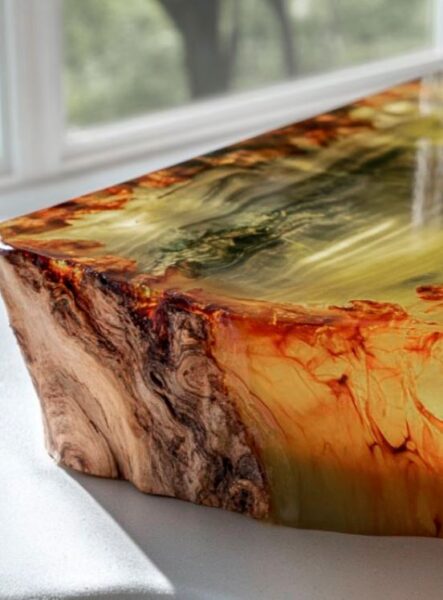
Another idea is to switch it up with a new resin coating that is a dark color to cover the yellowing completely and give your countertop a whole new look.
Can I Prevent My Resin Countertops from Yellowing?
You can slow it down but you can’t fully stop it. Using a resin with strong UV protection helps, but even then, time and light will eventually do their thing.
Keeping the surface out of direct sunlight, using gentle cleaners, and wiping up spills right away will definitely help your countertops last longer.
Is There a Type of Resin That Doesn’t Yellow?
No resin is 100% yellow proof, but some brands are much better than others. Look for resins that are labeled as UV resistant and non-yellowing.
Here are some top selling epoxy brands for countertops that have a UV resistant formula. But always double check and ask the brand your specific questions first.
Here’s a list of the best epoxy for countertops and if you are making countertops with wood inclusions, here are some of the top resins for wood.
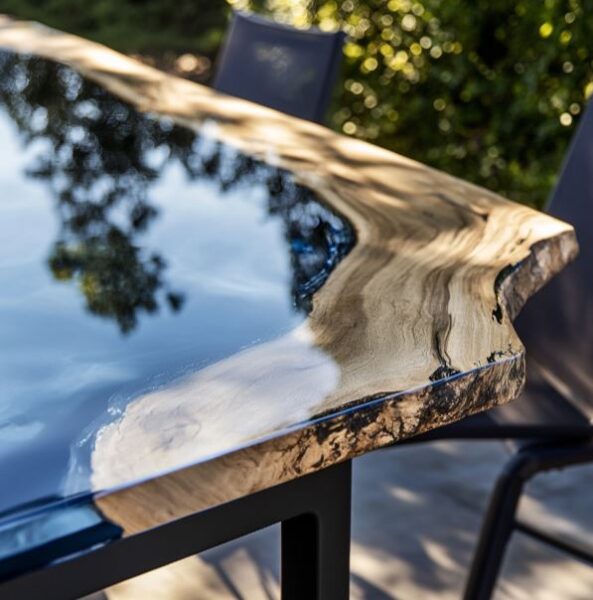
Even then, it’s more about slowing down the yellowing than stopping it forever. Professional-grade brands tend to perform better for big projects like countertops.
What Are Good Alternatives to White Resin Countertops?
If you love the idea of resin but want less stress, go for a marbled, stone-look, or tinted design. These styles hide small color shifts really well.
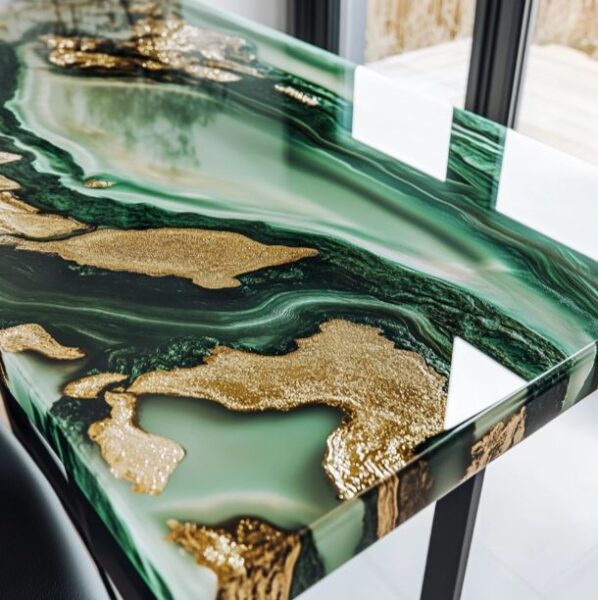
You can even mix a tiny bit of pigment into the clear resin to create a soft custom color. It gives you all the beauty of resin without the constant worry about yellowing. Black countertops look high end and you can incorporate resin glitters and gold accents.
What To Tell Someone Who Wants White Epoxy Countertops
If your customer really wants white resin countertops, it’s a good idea to have a real conversation with them first.
Explain that white resin can look beautiful at first but tends to yellow over time, no matter how careful you are.
You can suggest using a different color or surfacing.
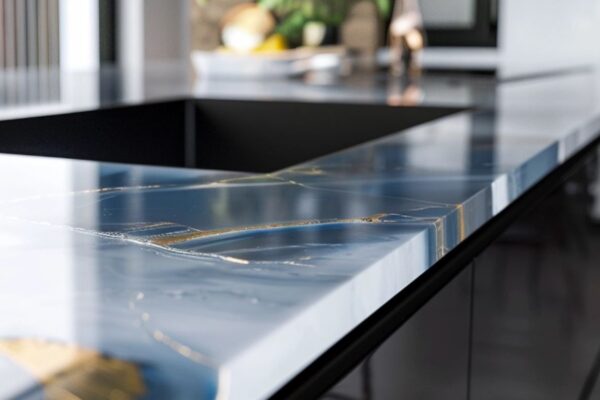
The best colors to use are dark colors with accents. Be clear with them in letting them know about the problems of epoxy yellowing over time so that they know exactly what to expect.
Thanks so much for reading. I’m sorry if you’re dealing with yellowing countertops. I know how frustrating that can be after all the work that goes into them.
I once made a gorgeous resin tray that has now turned yellow so I can see how disappointing a whole countertop could be. I hope this helped you figure out your next steps and maybe gave you a few ideas for moving forward!

